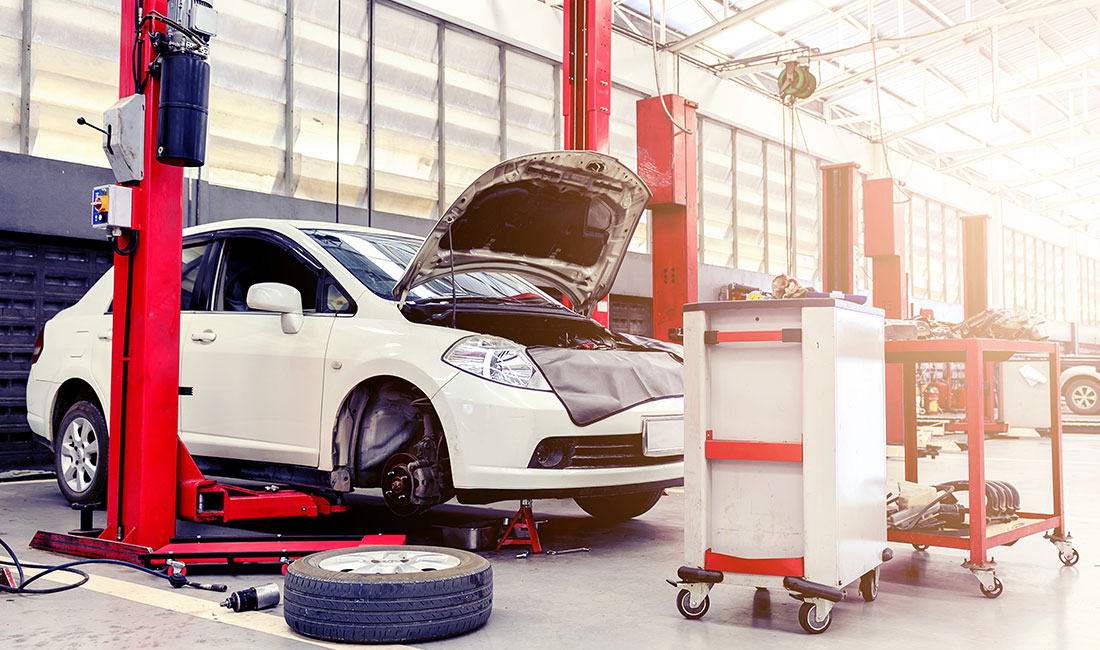In its 198 pages, the New Car Retailing Industry final report by the Australian Competition and Consumer Commission (ACCC) makes a range of recommendations and points to future reports that aim to mop up inconsistencies in the umbrella relationships between OEMs, dealers, the regulators and consumers.
Within three hours of release, it has been welcomed by the Australian Automotive Dealers Association (AADA) and the Australian Automobile Association (AAA). More industry representatives are expected to follow.
AAA chief executive Michael Bradley said: “There are millions of Australian motorists that can potentially benefit from the sensible ACCC recommendations and we urge the government to seriously consider those that improve consumer knowledge and choice.
“Australian motorists deserve to have all the relevant information in front of them when purchasing a vehicle. Apart from having the ability to make a fully informed choice, the recommendations will help diminish vehicle emissions without drastic costs or reducing the choice of vehicle available.

The AADA said that the ACCC’s New Car Retailing Industry report “clearly demonstrates the need for a new car retail industry code”.
AADA CEO David Blackhall said the report “has revealed a structural imbalance in the relationship between Australia’s new car franchised dealers and vehicle manufacturers”.
“This relationship is skewed very much in favour of the offshore manufacturers and local dealerships that employ tens of thousands of Australians countrywide are suffering,” he said.
“An industry code needs to address the fact that dealers have no security of tenure, are increasingly being served with non-renewal notices, have ineffective capital expenditure protections and unfair end of term arrangements.”
ACCC chairman Rod Sims said the market study was in response to concerns raised by the industry and consumers, and is the result of almost 18 months of investigation, consultation, research and evidence.
The results will affect about 1500 new-car dealers operating 3500 outlets in Australia. In its data, the ACCC said households account for about 66 per cent of dealer retail sales (about 447,000 cars in 2016); general businesses, rental companies and taxi operators are about 29 per cent (about 195,000 cars); and government and other customers equal five per cent (about 30,000 cars).

The ACCC estimates that new-car dealer revenues from all sources to be in excess of $66 billion annually. Over the same period, dealers are expected to earn $1.5 billion in profits.
The report is comprehensive, as the page number attests, but here is our breakdown on the issues that most affect this industry.
DEALERS AND OEMS: The ACCC said that it has become aware of certain issues raised by dealers relating to the imbalance of power in their commercial arrangements with manufacturers and suggests that this may breach the franchising code and contract law.
It said the problems with this relationship “go beyond the impacts on Australian Consumer Law (ACL) compliance” and “may require further examination” including a “review of the Franchising Code of Conduct”.
“Industry bodies representing dealers have raised concerns for several years that there is a structural power imbalance in the relationship between a manufacturer and a dealer,” the report said.

It said the NSW small business commissioner posited that this relationship was in favour of the manufacturer, with dealers offered contracts on a “take it or leave it” basis. The reasons for the imbalance are:
- Significant upfront capital investment is involved in establishing new dealership facilities, with estimates provided in the range of $6 to $20 million depending on the metropolitan or regional location of the dealership.
- The length of the initial and subsequent tenure of dealership agreements is typically of relatively short duration, in most cases one to five years, and often does not enable the dealer to recoup the capital investment before the end of the relevant term.
- Dealers do not have security of tenure and, in most cases, renewal of the agreement is at the absolute discretion of the manufacturer.
“Dealer representative bodies submitted that given these features, dealers are financially vulnerable and beholden to manufacturers,” the report said.
“The AADA submits that there is an increasing trend of manufacturers issuing non-renewal notices to dealers that have met or exceeded their performance targets and are not in breach of the dealer agreement.
“Unlike termination for breach, a manufacturer is not required by the Franchising Code to provide a dealer with reasons for issuing a non-renewal notice. This makes it difficult for a dealer to assess whether the manufacturer has exercised its right to issue a non-renewal notice in good faith, as required by the Franchising Code.
“The ACCC is of the view that contract terms that allow one party to unilaterally vary any provisions of a franchise agreement or its related policies and procedures in an unconstrained manner may raise concerns under the unfair contract terms law.
“Unilateral variations to the terms of a dealer agreement or its related policies which cause a significant imbalance to the rights and obligations between manufacturers and dealers may amount to unfair contract terms where the variation is not reasonably necessary to protect the legitimate interests of the manufacturer and will cause detriment to the dealer.”
The ACCC recommends that original equipment manufacturers (OEMs) “should transform their approach to the handling of consumer guarantee claims or risk action for non-compliance with the ACL”.

It said it will recommend that car manufacturers:
- update their complaint handling systems to ensure that consideration of consumer guarantee rights are embedded in all relevant systems.
- update their dealer agreements and policies to expressly state that obligations under the manufacturer’s warranty are in addition to, and do not exclude or limit, the manufacturer’s obligations to indemnify the dealer under section 274 of the ACL.
- review their dealer agreements, policies and procedures to ensure that these commercial arrangements do not contain unfair contract terms.
“Certain issues raised by dealers in relation to the imbalance of power in their commercial arrangements with manufacturers may require further examination,” the ACCC said.
The ACCC may submit to the next Franchising Code of Conduct review set for 2020.
INDEPENDENT REPAIRERS: These repairers are not authorised or affiliated with car-makers and yet are reliant on these manufacturers to voluntarily share information and data.
The report said that “about one in 10 new-car buyers have their car repaired or serviced with an independent repairer.”
“The ACCC is of the view that the competitive discipline imposed by independent repairers on the aftermarkets for the repair and servicing of new cars remains valuable and of benefit to consumers, and that consumers also benefit from having a choice of providers to repair and service new cars,” the report said.
It said some car-makers had offered voluntary commitments to provide the independents with the same technical information to repair and service new cars that they provide to their dealers.
But problems with the breadth, depth and timeliness of the technical information offered appear to be enduring.
“Many of these car manufacturers do not provide technical information they deem as being environmental, safety or security-related, due to the perceived risks of increased car thefts and unauthorised modifications arising from the release of these types of information,” the report said, backing up concerns by the AADA.
The ACCC now recommends “regulatory intervention to mandate the sharing of technical information with independent repairers on ‘commercially fair and reasonable terms’, subject to appropriate safeguards to enable the sharing of environmental, safety and security-related technical information”.

OTHER ISSUES: The ACCC report was concerned that:
1: Consumers are not receiving accurate information about the fuel consumption or emissions performance of new cars. It quoted AAA data indicating that real-world fuel consumption is on average 23 per cent higher than official laboratory test results.
ACCC recommendation:
The ACCC supports moves to enhance the quality of information supplied to consumers currently being considered by the Ministerial Forum into Vehicle Emissions, including the introduction of a more realistic laboratory test and real driving emissions testing.
The ACCC also considers there may be additional benefits to consumers from an Australian real driving emissions test, and recommends that the Ministerial Forum consider the costs and benefits of an Australian real driving emissions testing program as proposed by the AAA
2: Consumers are not receiving adequate information about consumer guarantees at the point of sale of a new car.
The ACCC believed that the information provided is generally very limited and is usually not provided in a form consumers can retain, and refer to later. It is also concerned that commercial arrangements between OEMs and dealers can “constrain and influence the behaviour of dealers in responding to complaints”.
“Dealers, as retailers of new cars, have direct responsibility to provide remedies to consumers under the Australian Consumer Law and have the right to recover the costs of remedies from manufacturers, where the manufacturer is responsible for the failure,” it said.
“Given the nature of commercial relationships between manufacturers and dealers, dealers are frequently in the challenging position of balancing their ACL obligations to customers, safeguarding their own financial interests and maintaining a long term commercial relationship with their manufacturer.”
ACCC recommendation:
The ACCC will work with manufacturers and dealers to develop a concise and simple explanation of consumer guarantees and their interaction with warranties, which should, as industry best practice, be provided to consumers at the point of sale of a new car.
By Neil Dowling













 Read More: Related articles
Read More: Related articles

